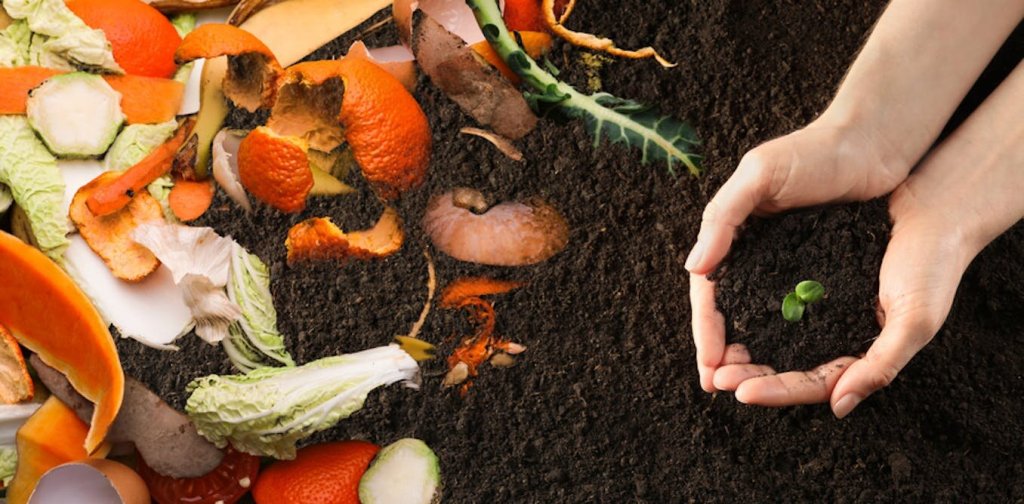In today’s rapidly changing world, instilling a sense of environmental responsibility in our children is paramount. Homeschooling provides a unique opportunity to design a curriculum that covers standard academic subjects and delves into real-life issues like food waste, recycling, and composting.
By integrating these topics into your homeschool routine, you can nurture your child’s understanding of sustainable living and foster an appreciation for science, technology, engineering, and mathematics (STEM).
Let’s explore how crafting a homeschool curriculum around food waste, recycling, and composting can be an excellent foundation for practical science education.
The Intersection of Sustainable Living and STEM
Sustainable living and STEM education share a natural connection. Students can develop critical thinking, problem-solving, and analytical skills by exploring the science behind food waste, recycling, and composting. This interdisciplinary approach engages children in real-world issues while instilling a sense of responsibility towards the environment. Moreover, it ignites curiosity and encourages hands-on learning, making it an ideal method for homeschooling.
Food Waste: From Waste to Wonder
The curriculum addresses various types of food waste and its environmental impact. Students will learn about the staggering statistics of food wastage and explore ways to minimize it through thoughtful meal planning and proper food storage. Practical experiments will demonstrate the science of decomposition and the role of microorganisms in breaking down organic matter, such as setting up a compost bin to observe the decomposition process.
Recycling: A Journey of Transformation
In this section, students will delve into the importance of recycling and its potential to conserve valuable resources. Just as there are numerous methods to recycle materials like paper, plastic, glass, and metal, there are equally innumerable types of kites, from traditional diamond shapes to intricate box kites, reflecting the creativity and innovation behind both recycling and kite design. Hands-on activities will demonstrate the concept of upcycling, where discarded items are transformed into new and valuable products, such as creating art projects using recycled materials or designing simple machines that promote recycling efforts.
Composting: Nature’s Recycling System
Composting is a fascinating natural process that turns organic waste into nutrient-rich soil. Students will learn about the science behind composting, exploring the role of microorganisms, temperature, moisture, and aeration in decomposition. Setting up composting experiments will demonstrate the ideal conditions for efficient composting, emphasizing its role in reducing landfill waste and enhancing soil health.
Easy Experiments to Try In Your Kitchen
Seed Germination Test
Explore the factors influencing seed germination by planting seeds from various types of fruits and vegetables (e.g., tomatoes, peppers, beans) in different environments (e.g., light vs. dark, warm vs. cold). Observe and document their growth to understand the optimal conditions for successful germination.
DIY Biodegradable Plastic
Investigate biodegradation by making your biodegradable plastic from natural materials like cornstarch and vegetable oil. Compare its decomposition rate with regular plastic to highlight the environmental benefits of using biodegradable alternatives.
Water Filtration Experiment
Learn about the importance of clean water by testing different water filtration methods. Use household items like coffee filters, sand, and gravel to create makeshift filters and evaluate their effectiveness in purifying water.
Avocado Ripening Experiment
Compare various methods of ripening avocados to determine the most effective one. Set up three approaches: placing an avocado in a paper bag to trap ethylene gas, putting another avocado with a ripe banana or apple to accelerate ripening, and wrapping the third avocado in plastic wrap to create a controlled environment. Observe the ripening process over several days and identify the most successful method based on the final results. This experiment showcases the role of ethylene gas in fruit ripening and encourages children to explore the practical applications of science in everyday life.
Conclusion
By crafting a homeschool curriculum centered around food waste, recycling, and composting, you empower your child to be environmentally conscious and scientifically adept. The integration of easy home experiments, like the avocado ripening experiment and others mentioned above, further reinforces the practical application of scientific concepts. With this curriculum, children will gain the knowledge and skills needed to make informed decisions and contribute to a more sustainable future for our planet.

